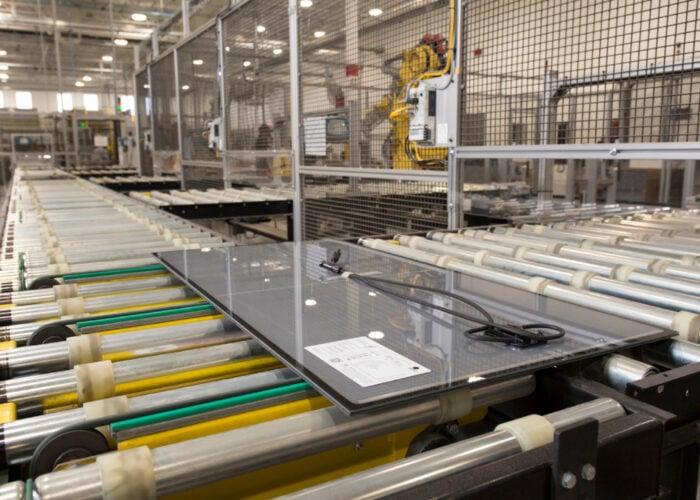The Indian state of Tamil Nadu has finalised its policy on solar net metering, introducing a cap on the amount of solar-generated electricity rooftop PV users can inject into the grid.
The Tamil Nadu Electricity Regulatory Commission (TNERC) released an order 13 November in response to stake holder responses on changes to its net metering and distributed energy connectivity policies.
Try Premium for just $1
- Full premium access for the first month at only $1
- Converts to an annual rate after 30 days unless cancelled
- Cancel anytime during the trial period
Premium Benefits
- Expert industry analysis and interviews
- Digital access to PV Tech Power journal
- Exclusive event discounts
Or get the full Premium subscription right away
Or continue reading this article for free
Domestic solar rooftop users will now be capped at injecting no more than 90% of their yearly power consumption in solar electricity into the grid, with excess energy to be “lapsed”.
Excess energy can be carried over to the next year to be used by consumers, but cannot be carried over to a second following year.
The Tamil Nadu Generation and Distribution Corporation Limited (TANGEDO), the electrical power generation and distribution owned by the government of Tamil Nadu, sought comments and suggestions for net-metering practice from stakeholders via an online forum, with a submissions deadline of 15 August 2013. Based on feedback a draft was issued, requiring further feedback, as of the 30 September.
According to national news outlet, Deccan Chronicle, the draft cap was 200%. The 90% was decided via an online forum of regulators and stakeholders and decided as necessary for grid stability.
The new order also imposes a 30% cap on PV penetration, stating that local transformers are only allowed to accept 30% of its distributed power from solar. The cap is intended to avoid destabilising the grid with a large volume of variable PV generation and ensuring grid security.
Both existing and newly installed solar systems in Tamil Nadu are legible for net metering under the new order.
The new order also states that protective devices are to be fitted to rooftop solar to detect abnormalities which could affect grid security and regulation, and is to be the sole responsibility of solar users.
Solar array and equipment, including meters and inverters are to meet regulation and safety requirements, including storage batteries, which are to be restricted to the use of the consumers network.
Tamil Nadu’s Solar Policy 2012 aims for 3,000MW of solar energy to be installed by 2015.






